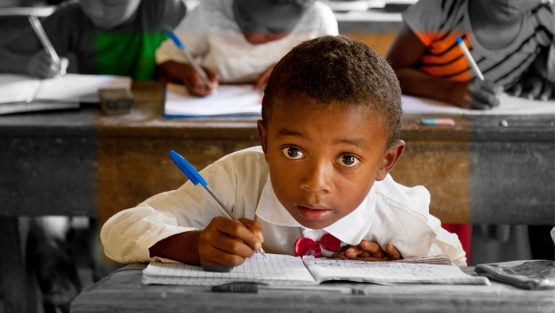The 4th international conference of U6, themed “Addressing the Sustainable Development Goals (SDGs) through Collaborative and Transnational Research”, was held at the University of Cape Coast, Ghana, between September 12 and 16. By the way, what is U6?
U6 is a consortium of six universities (plus others) impassioned by the need to promote South-South academic and research partnerships as a way of advancing development in Africa. Formed at the University of Ilorin in 2012, members of the U6 include the University of Cape Coast, Ghana; Cape Peninsular University of Technology, South Africa; Jaramogi Oginga Odinga University of Science and Technology, Kenya; Kwara State University, Nigeria; University of The Gambia, The Gambia and of course, the University of Ilorin, Nigeria. The membership of U6 has grown to include the University of Calabar, Nigeria, and the University of Eldorat, Kenya. The aims and objectives of U6 are similar to those of the Global Universities Network for Innovation (GUNI).
Invited to be a lead speaker on the sub-theme of Peace, Security and Development, my paper last Thursday (September 15, 2016) was entitled “Breaking the Back of Boko Haram and Building Sustainable Peace in Nigeria.”
After all was said and done, it was made clear that Boko Haram is significantly degraded in Nigeria today, unlike when it controlled many local governments like Ngala, Kala-Balge, Marte, Asira-Uba, Bama, Gwoza, Mafa and parts of Kodunga and Abadam in Borno State and seized as much as 20,000 square kilometres across Borno, Adamawa and Yobe States of the Nigerian soil about two years ago.
Despite the unsuccessful suicide attack on Sallah day and its self-amusing threat of seizing Mr President, Nigeria is much safer than last year from Boko Haram. While the country was ranked 148th out of 162 in 2014 and 151 out of 163 in 2015, a slight improvement on our Global Peace Index of 2016 positions Nigeria as149 out of 163 countries.
To break the back of Boko Haram, a number of approaches are needed, which former President Olusegun Obasanjo once referred to as “carrot and stick”. All of military, diplomatic, strategic, educational, economic and public relations approaches are needed as time demands.
In essence, building peace in Nigeria and avoiding the perilous path of violent agitations of either Boko Haram or any other lethal group rests on seven pillars. These include a vibrant education system that essentially develops the head, the heart and the hands of young Nigerians. With functional education, dysfunctional thinking that eventually leads to negative and destructive actions would be curbed.
Another pillar of peacebuilding that would break Boko Haram’s back is communication and the mass media. Since terrorism thrives on media coverage, there should be a strategic engagement with the amorphous Nigerian media to put national interest above any interest that might warrant hare-brained sensationalism that typifies its vocal section.
Besides, without good governance and inclusive politics, there is every possibility for the aggrieved and the socially disadvantaged to resort to self-help. The more our politicians see politics as service, not an opportunity for self-aggrandizement, the more they will inspire the rest of the populace towards positive action. Many years after their death, Nigerians still fondly remember our foremost nationalists for their sacrifices and legacies, which still impact on millions of people till today.
It is said that the basic needs of man are economic and all others are ancillary. In a situation where people find the basic needs of food, clothing and shelter a luxury, their sense of self-worth is diminished and they become vulnerable. Economic empowerment of our youths is a back-breaker for Boko Haram.
Other components of defeating terrorism and violent agitations in Nigeria include building an efficient and effective security architecture, creating a value-based social system that nullifies corruption and upholding the tenets of justice and equity in the polity.
Unlike Thomas Hobbes who posited that the state of nature is “solitary, poor, nasty, brutish and short”, I think the state of nature is beauty, the same reason for which we all appreciate natural (fresh) air, natural beauty, natural food and nature in its undiluted form. Human beings, by the same token, are naturally good but it is their families, cultures, societies and politics that turn them evil.
Re: Social media or social menace?
Social media is the great gain of globalization that has broken the borders of traditional communication. The social media platform has given room for people to be active participants in the wide range of issues in the society as it also serves as an avenue to learn positive things. The social menace of it has made some people to behave stupidly, using vulgar words to express their points and destructive criticism to rubbish people’s posts that do not suit them. It has also created a lot of political, religious and ethnic prejudice in the minds of brainswashed people. I don’t believe in total freedom due to abuse but I strongly agree that it can be regulated to save us from social thugs and bloggers that spread lies and confusion to build base online. Lastly, people should guard their privacy jealously based on what they intend to post on those social apps. – Aina Akindele Oyebanji, Ketu, Lagos State.






Happy birthday to my great inlaw long life in good health and abundant blessing
View Comment